class: center, middle, inverse, title-slide # Dirty Wars ## Lecture 7: Strategy and Population Control, or, Do Minds Matter More Than Bodies? ### Jack McDonald ### 2019-11-07 --- class: inverse # Theory Discussion Question .question[ Are there instances of individual extrajudicial detention, mass internment, or population control that you have encountered in your reading that you consider to be justifiable? Why? ] ??? --- class: inverse # Outline .pull-left[ What dirty wars reflect and demonstrate is that _control_ is the primary strategic concern of war. Dirty wars draw attention to the role of _population control_ in wars past and present. ] .pull-right[ - Strategy and Control - Irregular Warfare - How Do You Control a Population? ] ??? --- # Line of Argument The use of force to control populations matters more in some wars than others. Dirty wars necessarily involve population control. _But_ the intention behind population control differs to a significant degree between conflicts. ??? --- class: inverse # Part 1: Strategy and Control -- .pull-left[ > ...there is an essential unity to all strategic experience in all periods of history because nothing vital to the nature and function of war and strategy changes. Colin S. Gray, _Modern Strategy_ ] -- .pull-right[ > Strategy is about the relationship between (political) ends and (military, economic, political etc.) means. It is the art of creating power. Lawrence Freedman, _Strategic Studies and the Problem of Power_ ] ??? What is strategy, why does strategy matter? What do different definitions share? --- # Strategy as Theory/Practice/Knowledge > Strategic thought is inevitably highly pragmatic. Peter Paret, _The Makers of Modern Strategy_ -- > If this postulation of a general theory of strategy does have substance and validity and practicality, it might be able to provide a common and basic frame of reference for the special talents of the soldier, the sailor, the airman, the politician, the economist, and the philosopher in their common efforts toward a common aim. John C. Wylie, _Military Strategy_ -- - Strategic practice precedes strategic theory - do you need theory? - What kind of knowledge does strategic studies produce? ??? Paret quote p.3 Wylie quote CH.9 What are we talking about when we talk about strategy? Theory vs practice... --- # Strategy and Control > Weigley defined annihilation as seeking the complete destruction of the enemy’s military power and attrition as the pursuit of any military objective short of that. A strategy of exhaustion, by comparison, aims to make an adversary believe the probable costs of winning a conflict outweigh the likely gains. Antulio J. Echevarria II, _Reconsidering the American Way of War_ -- > Military strategy can no longer be thought of, as it could for some countries in some areas, as the science of military victory. It is now equally, if not more, the art of coercion, of intimidation and deterrence. Thomas Schelling, _Arms and Influence_ ??? Adversarial nature of strategy and war Unsolveable problem of free-will How goals and capabilities shape actions --- # Center of Gravity (DRC) .pull-left[ > Clausewitz described the centre of gravity emerging from the overruling relations of both parties, namely a centre of gravity is only relevant in relation to an opponent. It is not a concept that exists on its own. R. Iron, _Viewpoint_ _schwerpunkt_ and the problem of translation ] .pull-right[ 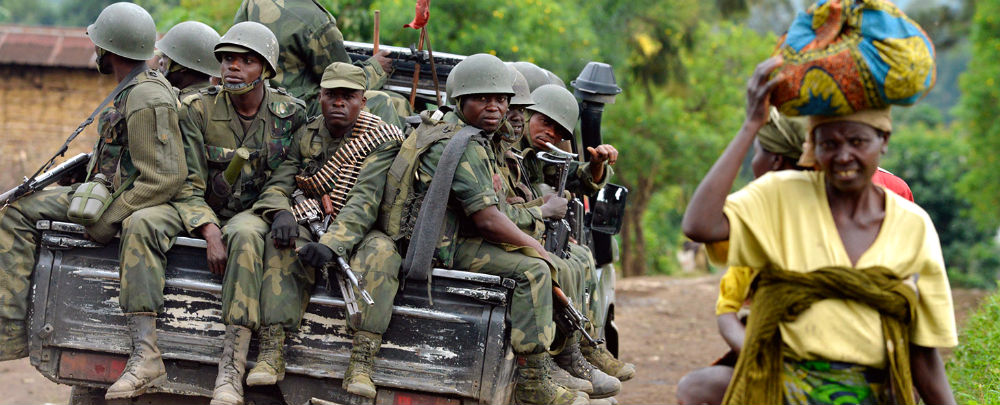  ] ??? quote p.111 COG theory/metaphor COGs beyond armies Where is the COG in Second Congo War? --- # Population Control .left-column[  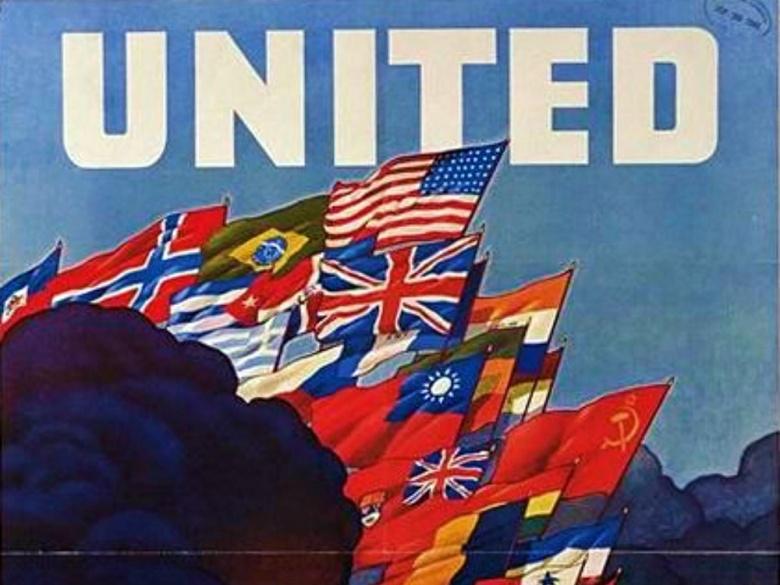  ] .right-column[ .medium[ > War is nothing but a duel on an extensive scale. If we would conceive as a unit the countless number of duels which make up a war, we shall do so best by supposing to ourselves two wrestlers. Each strives by physical force to compel the other to submit to his will: his first object is to throw his adversary, and thus to render him incapable of further resistance. Carl von Clausewitz, _On War_ [Trans. Graham] The problem with the duel metaphor: - Dyads without coalitions - Adversaries without populations - Populations can be an object of attack/defence/coercion - Populations can also be the context of war ] ] ??? Where wrestling metaphor goes wrong Wars between peoples, elites, nations, militaries Citizens and civilians --- class: inverse # Small Group Discussion .question[ What agency do civilian populations have in internal conflicts? ] ??? --- class: inverse # Part 2: Irregular Warfare ??? --- # Wars Without Battles: Raids, Sieges, and Slaughter > Raids traditionally had political and economic as well as military objectives. The Greeks adopted raids as a way to destroy crops to extract political concessions; the Vikings used them for economic ends, and the English in the Hundred Years’ War for both reasons. Archer Jones, _Art of War in the Western World_ ??? Idea of war as Battles War as exchange of independent force Vulnerability and communication through force --- # Typologies of Irregular Warfare .pull-left[ > "Revolutionary war" refers to the seizure of political power by the use of armed force. John Shy and Thomas W. Collier, _Revolutionary War_ Is there a difference between "savage warfare", imperial policing and counterinsurgency? ] -- .pull-right[ .medium[ Counterinsurgency and political repression: ]  .medium[ This entire analysis can equally foreground political repression, or violent political ordering projects ] ] ??? rev war quote p.817 "You have to write two books, one on war, one on political repression, and understand that both could be one and the same" How can you make sense of irregular warfare? Strategic goals, populations, states Why is COIN so important? --- # Wars Against the People .left-column[ 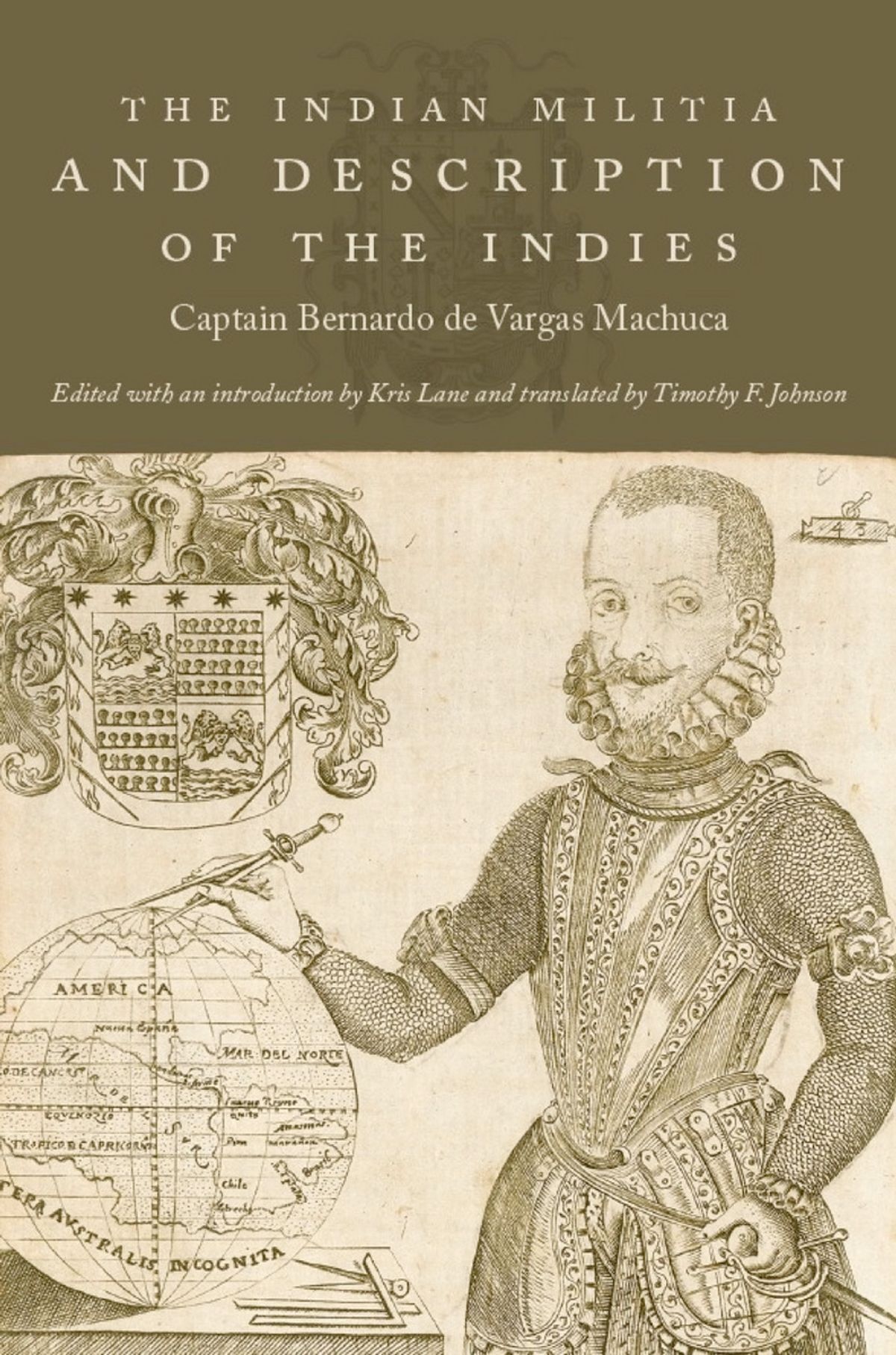 ] .right-column[ > ...there is no government today in all of the Indies that does not participate in wars and pacifications, and if not all, most of them Barnardo de Vargas Machuca, _The Indian Militia_ Wars without distinction Repression/imperial policing Use of force to direct/control entire population for own sake ] ??? quote from p.26 Wars without distinction Repression/imperial policing Use of force to direct/control entire population for own sake --- # Wars Amongst the People (Argentina) .pull-left[ .medium[ > our opponents are formless, and their leaders and operatives are outside the structures in which we order the world and society... They are of and amongst the people - and it is there that the fight takes place. But this fight must be won so as to achieve the ultimate objective of capturing the will of the people. Rupert Smith, _The Utility of Force_ ] ] .pull-right[ Wars where insurgent is considered part of the population Distinction problem, and attempts to overcome it Use of force to order/control population to enable distinction ] ??? Smith quote p.372 Wars where insurgent is considered part of population Distinction problem, and attempts to overcome it Use of force to order/control population to enable distinction --- class: inverse # Small Group Discussion .question[ Is it possible to distinguish between acceptable and unacceptable forms of population control? How? ] ??? --- class: inverse # Part 3: How Do You Control a Population? ??? --- # The COIN debates .pull-left[ > by focusing on efforts to secure the safety and support of the local populace, and through a concerted effort to truly function as learning organizations, the Army and Marine Corps can defeat their insurgent enemies. FM 3-24 ] -- .pull-right[ .medium[ > history has shown that insurgencies can be defeated by means other than the population-centric approach. Consider the recent defeat of the Tamil Tigers by the Sri Lankan military. Or consider what actually broke the back of the Malayan insurgency in the early 1950s, which was not so much the hearts-and-minds persuasion of Templer but the hard-handed use of military force against civilians, combined with a major resettlement program. Gian P. Gentile, _A Strategy of Tactics_ ] ] ??? Definitional issues of COIN Intro to seminar series Potted history of post 2001 COIN debates Enemy-centric vs hearts and Minds Political repression/ordering/building in COIN --- # Coercion and Persuasion .pull-left[ .small[ > We inform those people of Ma’ruf district who serve Americans day and night and reveal the places of Mujahidin to them, or those who dishonor sincere Muslims of the country, that American guards will not always be there and we can catch you any time. > We know the name and place of every person. Learn a lesson from those who were loyal to the Russians. (If God wills) soon you will come under the knife or bullet of Mujahidin. Taliban "Night letter" ] ] -- .pull-right[ > When a country is being subverted it is not being outfought; it is being out-administered. Bernard B. Fall, _The Theory and Practice of Insurgency and Counterinsurgency_ ] ??? Coercion/persuasion in insurgency/COIN Means of controlling/ordering population --- # Surveillance .pull-left[ 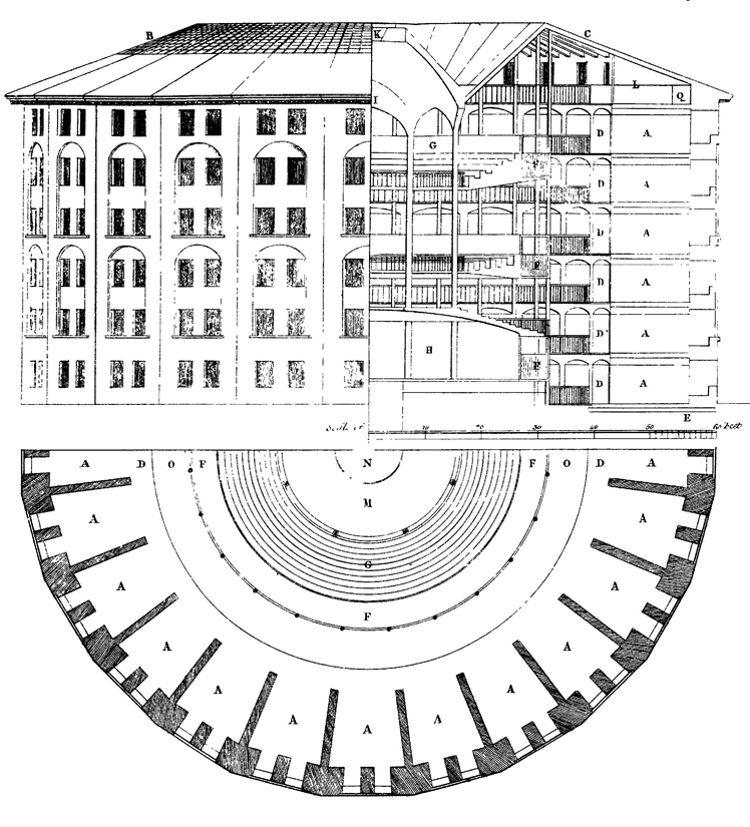 ] .pull-right[ .medium[ > Bentham laid down the principle that power should be visible and unverifiable. Visible: the inmate will constantly have before his eyes the tall outline of the central tower from which he is spied upon. Unverifiable: the inmate must never know whether he is being looked at at any one moment; but he must be sure that he may always be so. Michel Foucault, _Discipline & Punish_ ] ] ??? Key difference between co-terminal and insurgent irregular war is distinction Distinction creates individuation problem, and need for surveillance/intelligence Very means of controlling/limiting use of force seen by some as a problem in itself Remember surveillance is a tool of control --- # Physical Control (Vietnam) .pull-left[  ] .pull-right[ .medium[ > The instruments which serve authority best are those which expend the smallest amount of energy possible to produce the effects of control or domination. Olivier Razac, _Barbed Wire: A Political History_ ] - Control for control's sake, control for order, control for surveillance - Violence as means of control (and fear of violence) - Strategic Hamlets, and infrastructures of population control ] ??? Physical means of population control Control for control's sake, control for order, control for surveillance Violence as means of control (and fear of violence) Strategic Hamlets, and infrastructures of population control --- # Multiple Roles of Detention (N.I. & GWOT) .left-column[ 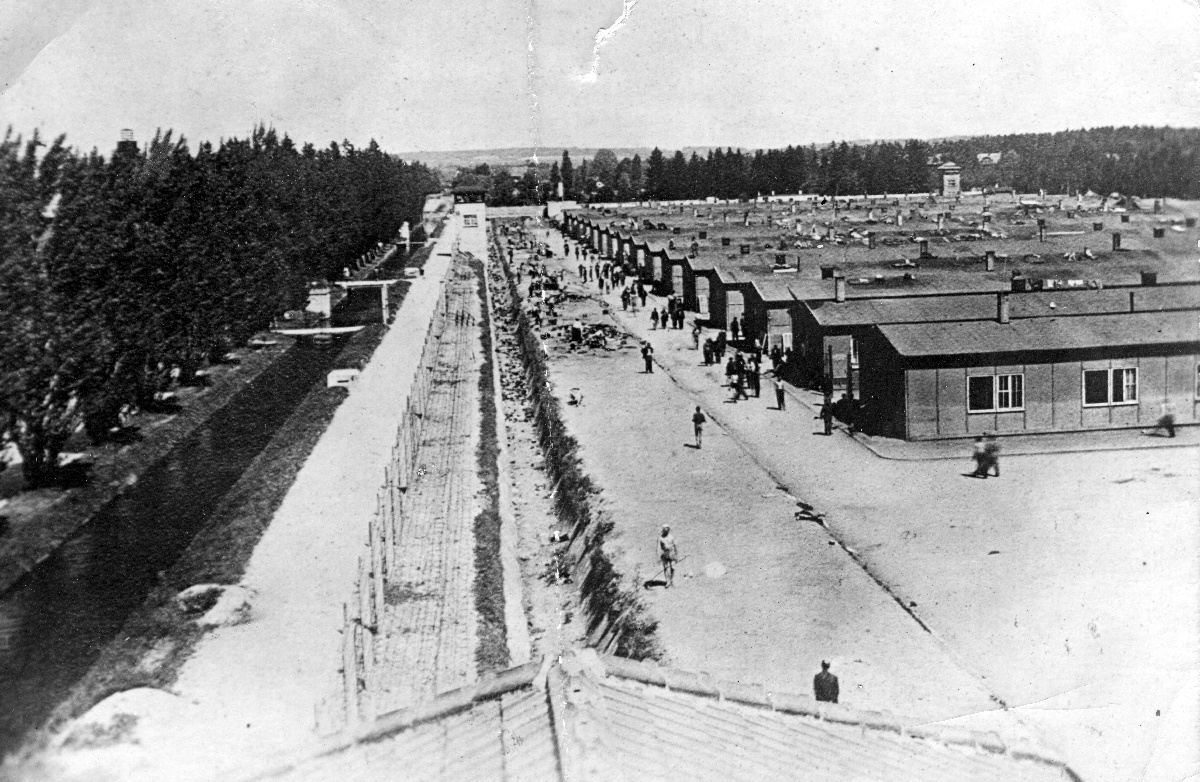 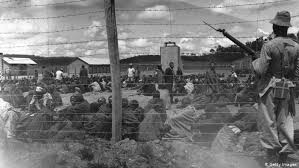 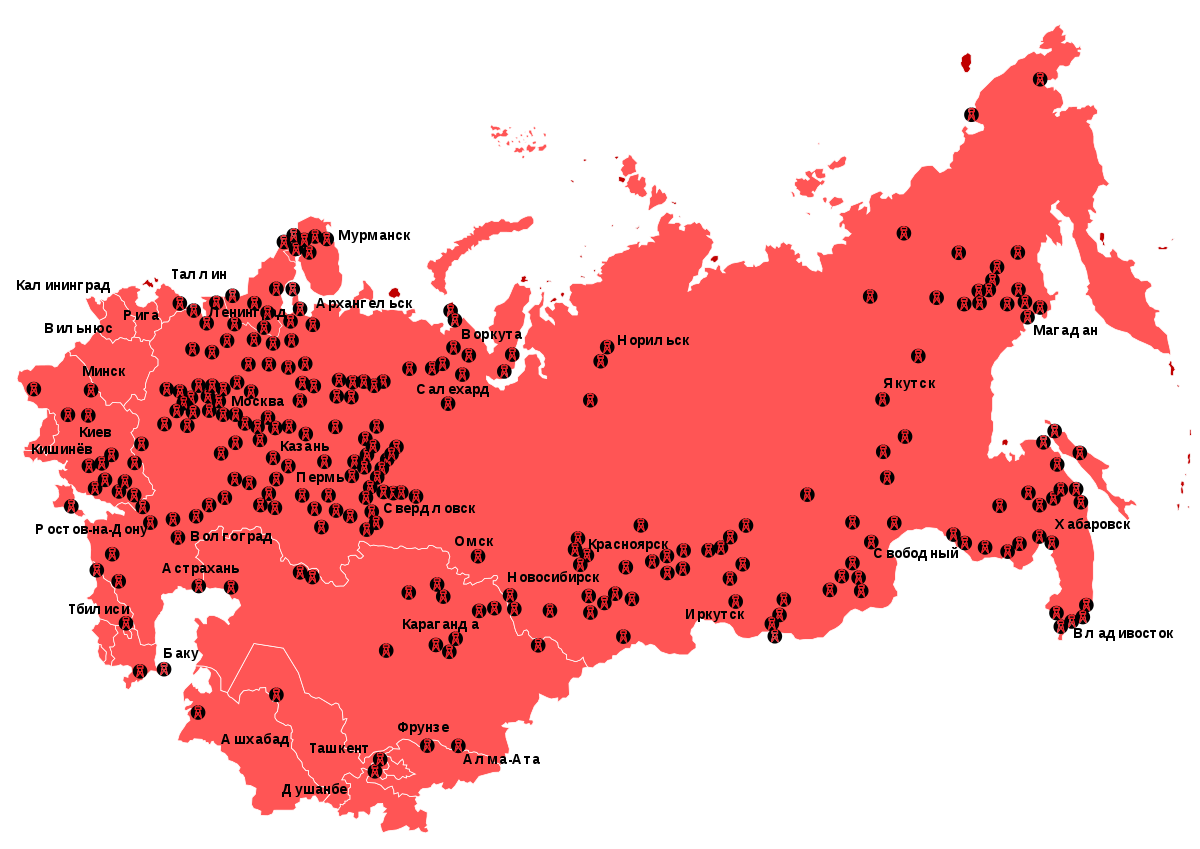 ] .right-column[ - Detention is control on an individual level, situated within context of population control - Detention as preventative measure - Detention can be used as a psychological weapon (secret police, detention centres) - Detention also used to collect evidence - Detention is in the eye of the beholder - one state's evidence collection might be a population's psychological weapon ] ??? Detention is control on an individual level, situated within context of population control Detention as preventative measure Detention can be used as a psychological weapon (secret police, detention centres) Detention also used to collect evidence Detention is in the eye of the beholder - one state's evidence collection might be a population's psychological weapon